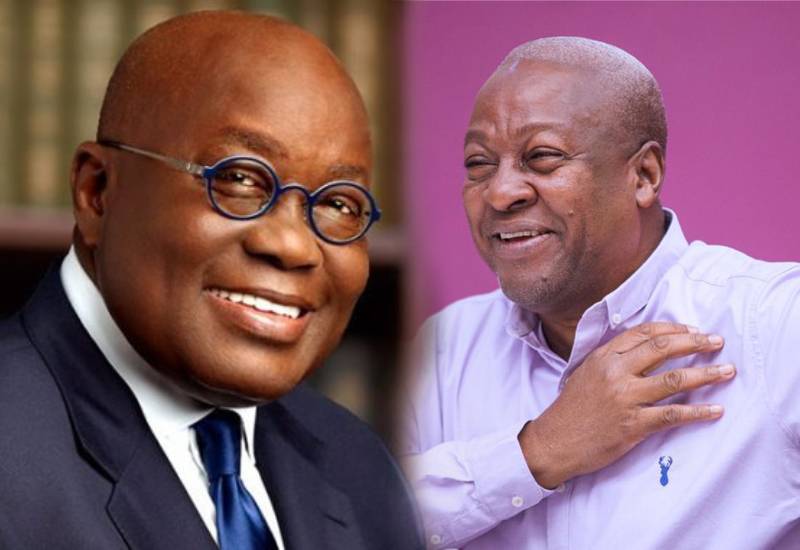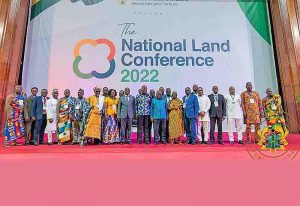By Godwin Owusu Frimpong
The political landscape in Ghana is once again embroiled in controversy, following the resurgence of the so-called Agyapadie document, which has sparked heated exchanges between the ruling government and the opposition. The document, alleged to detail a strategic plan for the Akyem people to dominate key sectors of Ghana’s economy, has been labeled a fabrication by President Nana Addo Dankwa Akufo-Addo. However, former President John Dramani Mahama has challenged this assertion, arguing that while the document may be deemed false, the very essence of its claims is reflected in the current government’s actions.
The Agyapadie document details a strategic roadmap reported to favor Akyem interests in various domains, including governance and economic management. Recently, it gained notoriety on social media and during political discourse, prompting heavy scrutiny from both sides of the political divide. President Akufo-Addo vehemently denied any authenticity to the document, describing it as a “baseless” attempt to mislead the public and provoke distrust among Ghanaians.
In a recent gathering with the Akyem Abuakwa State Council, the Okyenhene Osagyefuo Amoatia Ofori Panin backed the President’s claim, characterizing the document as an unfounded fiction designed to create division and incite animosity between ethnic groups. He drew parallels to past allegations, such as the “Akyem Project” that circulated before the 2016 elections, suggesting a continuous effort by detractors to tarnish the reputation of the Akyem leadership.
Conversely, Mahama, the National Democratic Congress (NDC) flagbearer and former President, has taken a more assertive stance on the matter. He has questioned the credibility of the denials coming from the presidency, pointing out that the practical implications of what the Agyapadie document allegedly outlines are evident in the government’s policies and actions over the past eight years. “If the Agyapadie document was fabricated, then the author must be a creative writer to know the mind of Akufo-Addo,” Mahama stated, insinuating that the administration’s actions mirror the content of the document, regardless of its authenticity.
Mahama further criticized the current administration for what he termed state capture, accusing it of engaging in widespread acquisition of state properties and amassing wealth at the expense of the Ghanaian populace. This statement resonates with the ongoing public sentiments regarding economic hardship and governance failures under Akufo-Addo’s leadership. Mahama’s discourse underscores a growing frustration among Ghanaians who feel increasingly disillusioned by rising costs of living, unemployment, and perceived governmental mismanagement.
President Akufo-Addo, addressing uncertainties surrounding the 2024 electoral cycle and the surge of misinformation, emphasized the need for vigilance. During the Ghana Report Summit on dealing with misinformation, he called for a collective effort to uphold the integrity of democracy, stating, “Our nation stands as a beacon of democracy… However, as we approach the 2024 General Elections, we must confront the growing threat of misinformation and disinformation.” He announced the government’s commitment to a National Action Plan aimed at countering false narratives in the lead-up to the elections.
As tensions mount, the dichotomy between the ruling party’s narrative and the opposition’s counter-narrative continues to widen. Politically motivated fabrications are not uncommon in Ghana, particularly as elections loom, and the Agyapadie document controversy exemplifies the challenges of public trust in political figures and institutions.
The focal point of this debate transcends the document itself; it embodies the larger issues of accountability, transparency, and governance in Ghana. With the country inching closer to another critical election period, the conversations concerning the Agyapadie document are not merely about language or literature—they symbolize deep-seated fears and anxieties about who legitimately holds power and what that power entails for the future of Ghanaians.
In summary, while President Akufo-Addo vehemently endorses the narrative of fabrication, Mahama’s retort echoes the frustrations of many citizens. The discourse around the Agyapadie document poses essential questions about leadership accountability and the authenticity of political promises, sure to become a pivotal talking point as the nation prepares for the upcoming elections in 2024.
Godwin Owusu Frimpong




